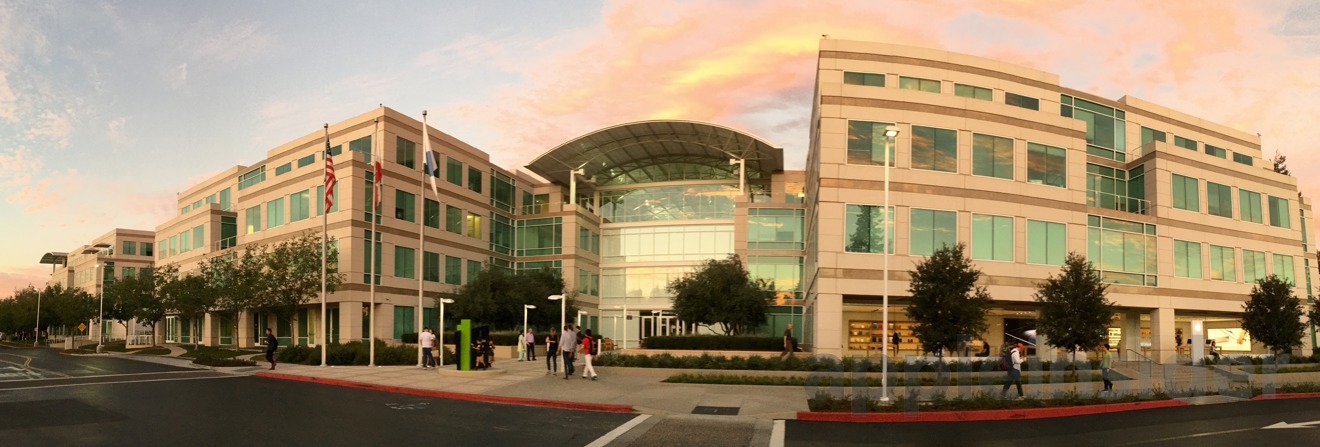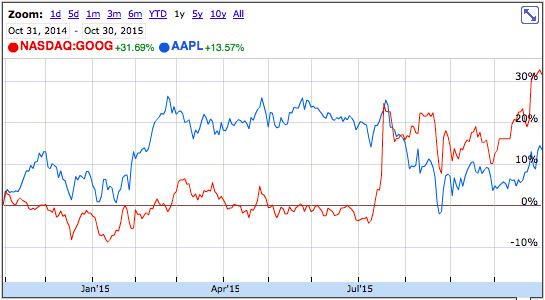After spending $11.2 billion across fiscal 2015 on capital expenditures, Apple anticipates that it will ramp up its investments in manufacturing, data centers, facility and retail infrastructure to $15 billion over the next year.
That huge increase in Capex spending is indicative of new projects and planned growth in production and sales. Capex describes long term investments expected to deliver future benefits, as opposed to Opex (operational expenses), which refers to ongoing spending in the course of running a business.
In its 10K filing, Apple specifically describes its Capex as involving "product tooling and manufacturing process equipment; data centers; corporate facilities and infrastructure, including information systems hardware, software and enhancements; and retail store facilities."
The $3.8 billion increase in planned Capex over the fiscal year that just ended in September represents 33 percent year over year growth. It is particularly noteworthy because Apple has historically been very conservative with its spending.
Last October, Apple reported that it expected to spend $12.4 billion on Capex for the fiscal year that just ended, later noting that would spend over a billion less than it had planned due to more efficient spending on equipment and facilities (rather than cuts to product pipeline spending).
Apple's massive growth comes from massive investment, not a short term fluke of popularity
Just five years ago, Apple was only spending just over $2 billion on annual Capex in total, outlining the vast increase in the infrastructure— including manufacturing capacity— that Apple is investing in on a global scale.
In 2013, Apple's then-chief financial officer Peter Oppenheimer noted that with its Capex, "we're buying equipment that we will own that we will put in our partners facilities. Our primary motivation there is for a supply, but we get other benefits as well.""Apple's enormous capital spending is reshaping the global supply chain for the industry" - Horace Dediu
Later that year, Asymco analyst Horace Dediu astutely noted that Apple's rapidly increasing capital expenditures "has followed very closely their production of iOS devices," after having earlier detailed "how Apple's enormous capital spending is reshaping the global supply chain for the industry."
Apple's liberal amounts of conservatively spent Capex have directly translated into not only capacity gains, but also directly into revenue. Katy Huberty of Morgan Stanley observed in 2012 that "Apple's revenue and Capex ex-retail stores have been 97 percent correlated over the past seven years and the acceleration in Capex growth signals a similar acceleration in revenue growth, in our view."
Valued like lessor firms, Apple would be $200 or $300
In contrast, Google spent a similar $11.1 billion in Capex over its last reported fiscal year, as its revenues increased by $6.1 billion, or 10.2 percent, and its earnings increased by $1.7 billion or 14 percent.
Apple's fiscal year reported an increase in revenues by $51.37 billion, or 28 percent, and its reported earnings increased by $13.88 billion or 35 percent. Particularly since July, Apple's superior performance has not been reflected in its share price.
Over the past three months, Apple has taken advantage of this irrational dip— largely stoked by a misunderstanding of the market in China— to buy back an astounding $14 billion of its own stock.
While Apple and Google have very different businesses, Apple's infrastructure investments are translating into increased growth, both in absolute dollars and in relative growth despite Apple's much greater "large numbers." Even so, investors are currently valuing Apple at a price to earnings ratio of 12.99, compared to 33.35 for Google or Microsoft's 35.37.If Apple's shares were to increase to a valuation like Google's, the share price would currently be over $300
The P/E of the Standard & Poor 500 is just under 22. Were Apple given a share value similar to its peers (which Apple is outperforming), its share price would be over $200, an increase of more than 69 percent.
If Apple's shares were to increase to a valuation like Google's— a company with greater exposure to a single business segment, effectively zero potential in China, and which pays no dividends— the share price of world's most profitable public company would currently be over $300.
 Daniel Eran Dilger
Daniel Eran Dilger








-m.jpg)






 Charles Martin
Charles Martin
 Christine McKee
Christine McKee
 Wesley Hilliard
Wesley Hilliard
 Malcolm Owen
Malcolm Owen
 Andrew Orr
Andrew Orr
 William Gallagher
William Gallagher
 Sponsored Content
Sponsored Content








79 Comments
This is good news to an extend but I do hope that some of that production capacity is heading for the USA.
It jumped $4B from 2013 to 2014 too.
This is good news to an extend but I do hope that some of that production capacity is heading for the USA.
you would think watches (relatively low volume and huge margin compared to labor) could be assembled in the USA.
I don't know the timeline for new campus completion, but maybe this increase has something to do with that. New office, new kit....
[quote name="wizard69" url="/t/189860/apples-investments-in-infrastructure-tooling-retail-to-jump-to-15-billion-in-2016#post_2799347"]This is good news to an extend but I do hope that some of that production capacity is heading for the USA.[/quote] Only if robots would handle the "labor". US wages are cost prohibitive compared to China or elsewhere.